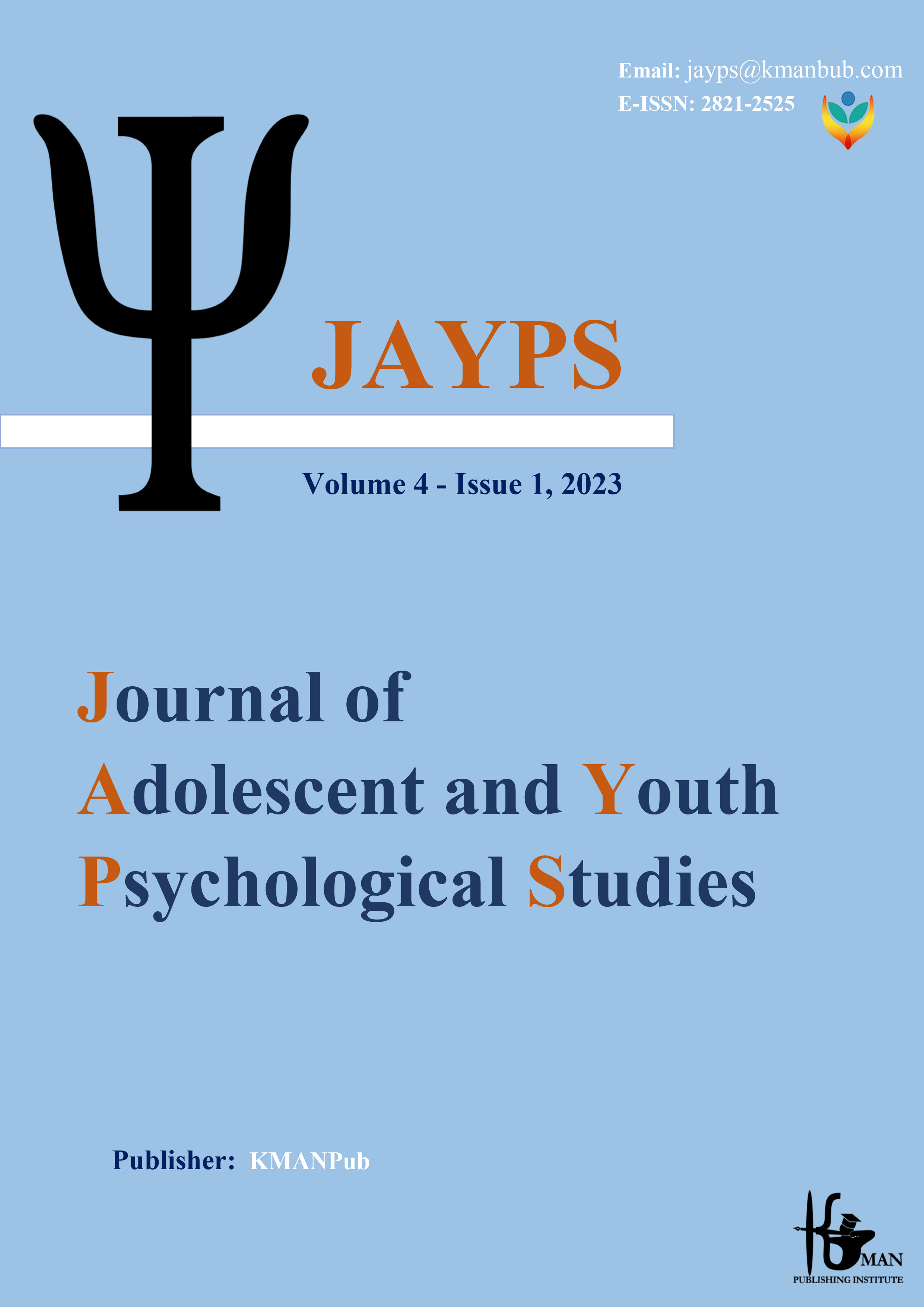The effect of teaching emotion process order-seeking strategies on students' cyber aggression and mobile phobia
Keywords:
Mobile phone phobia, students, cyber aggression, thrill seeking.Abstract
Background and Aim: The existing studies indicate that mobile phone phobia and the morbid habits associated with it cause negative and unfavorable physical and psychological consequences for the individual. Therefore, the present study was conducted with the aim of determining the training of order-seeking strategies of the excitement process on cyber-aggression and mobile phone phobia of students. Methods: This was a quasi-experimental research with a pre-test-post-test design with a control group. The statistical population of the research consisted of all undergraduate and higher students of Gorgan University in the academic year of 2001-2001. Among them, 30 people were selected as a sample of the study according to the available sampling method and according to the criteria for entering and leaving the study and randomly divided into two experimental groups (15 people) and the control group (15 people) were assigned in 10 90-minute sessions (2 sessions per week), the people of the experimental group received the educational program of emotion process regulation strategies as a group; The control group was placed on the waiting list for 2 months. In order to collect data, questionnaires of cyber aggression (Alvarez García et al., 2016) and nomophobia (Yıldırım & Correia, 2015) were used. To analyze the data, univariate and multivariate covariance tests were used. Results: The results of the research showed that there is a significant difference between the average post-test scores of the experimental and control groups in the variable of cyber aggression and its components (including impersonation, visual-sexual and verbal aggression) and the variable of Mobile phobia and its components (including loss of comfort and convenience, inability to communicate and loss of communication) were present (P<0.001); However, no significant difference was observed in the component of lack of access to information. Conclusion: According to the results of this research, it is possible to suggest the teaching of emotional process regulation strategies as an effective intervention to reduce cyber aggression and mobile phone phobia in students.
Downloads
Published
Submitted
Revised
Accepted
Issue
Section
License

This work is licensed under a Creative Commons Attribution-NonCommercial 4.0 International License.









